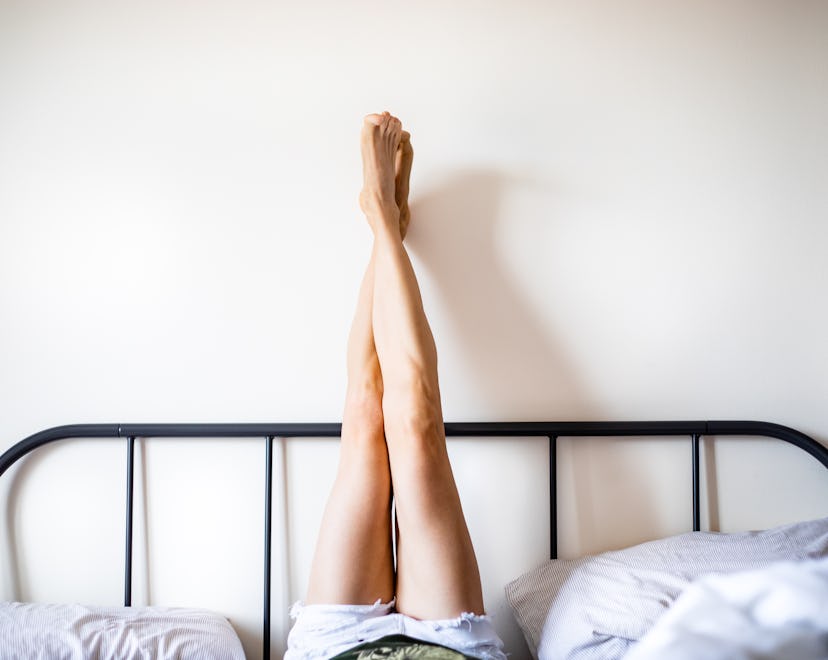Trying

How To Keep Sperm In When Trying To Conceive
You don’t have to do much.
Getting pregnant seems like it should be so easy. You do the deed unprotected, sperm comes out and goes in, and bam, you’re pregnant. If only it were this easy when you’re trying to concieve, right? For many of us, though, it takes a lot of work. After a few months, we find ourselves searching for anything and everything that might help — sex positions, ovulation tests, fertility apps. You’d do anything to increase your chances of getting pregnant, and may even be wondering if there are ways to keep sperm in when trying to conceive.
Should you stay in bed after intercourse?
Getting sperm exactly where you want them is key when trying to become pregnant — you know this already. After you and your partner have had your romp, some experts say you shouldn’t rush off too soon. Stay in bed for about 15 minutes after you have sex, “which is all it should take for the quickest guys, which are the healthiest sperm, to make it up into the cervix.” Dr. Mary Jane Minkin, OB-GYN, tells Romper. But don't worry, there's no need to prop your hips up or pull your knees to your chest unless you want to, since neither of these positions make the sperm-to-egg connection any more effective.
What really matters more than how to keep sperm in
Though it can feel elusive if you’ve been trying for a few months — or longer — sperm stay in all on their own. You don’t have to do anything. But lots of sex and lounging in bed won't do you any good if you haven't done a little ovulation math. Ovulation is the time a woman's body is able to conceive, so making sure you have a gauge on where you are in your cycle is your first step towards getting pregnant. To figure out when your body is dropping eggs you can track your period for a few months, examine your cervical mucus, track your basal body temperature, or use an ovulation predictor kit.
So, you don’t really need to worry about “keeping sperm in,” but if you want to try stay in bed for a few minutes after sex, it doesn’t hurt and it may help. Most of all, though, just make sure you’re having sex during your fertile period and right before, during, and after ovulation.
Expert:
Dr. Sherry A. Ross, MD, OB-GYN and women’s health expert in Santa Monica, California
This article was originally published on